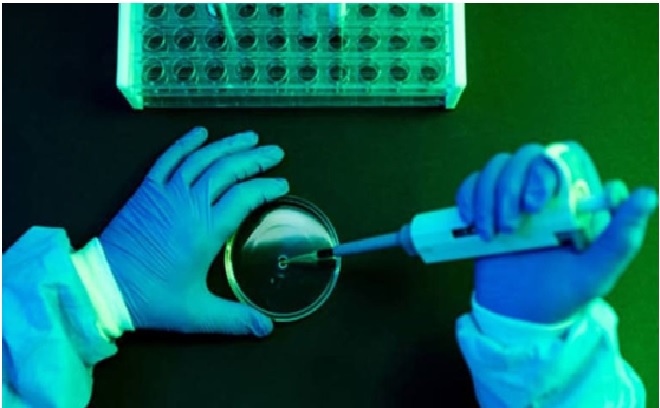First Synthetic Embryos Developed without Sperm or Eggs
The team from Weizmann Institute of Science, Israel have grown synthetic embryo models of mice outside the womb by starting solely with stem cells cultured in a petri dish – that is, without the use of fertilized eggs.It had been cultured for years in a petri dish, dispensing with the need for starting with a fertilized egg.

Figure 1: Synthetic embryo models of mice outside the womb.
Figure 1 shows that the researchers separated the stem cells into three groups. In one, which contained cells intended to develop into embryonic organs themselves, the cells were left as they were.Cells in the other two groups were pretreated for only 48 hours to overexpress one of two types of genes: master regulators of either the placenta or the yolk sac. [1]
They were then mixed in the electronically controlled device, in which just about 0.5% or 50 of around 10,000 went on to form spheres, each of which later became an elongated, embryo-like structure. They were able to observe the placenta and yolk sacs forming outside the embryos and the model’s development proceeding as in a natural embryo.
The synthetic embryos continued to develop for 8.5 days nearly half of the mouse's 20-day gestation at which stage all the early organ progenitors had formed, including a beating heart, blood stem cell circulation, and a brain with well-shaped folds, a neural tube, and an intestinal tract. [2]
When compared with natural mouse embryos, the synthetic embryos were 95% the same in terms of their internal structure and the genetic profiles of the cells. As far as the scientists could tell, the organs that formed were functional.
Hanna said synthetic embryos were not “real” embryos and did not have the potential to develop into live animals, or at least they hadn’t when they had been transplanted into the wombs of female mice. He has founded a company called Renewal Bio that aims to grow human synthetic embryos to provide tissues and cells for medical conditions.
“Synthetic human embryos are not an immediate prospect. We know less about human embryos than mouse embryos and the inefficiency of the mouse synthetic embryos suggests that translating the findings to human requires further development,” Briscoe said. [3]
References:
- https://sambadenglish.com/without-sperm-or-eggs-scientists-create-first-synthetic-embryos/
- https://www.indiatoday.in/science/story/israeli-scientists-create-world-s-first-synthetic-embryo-without-sperm-1983669-2022-08-04
- https://www.theguardian.com/science/2022/aug/03/scientists-create-worlds-first-synthetic-embryos
Cite this article:
Sri Vasagi K (2022), First Synthetic Embryos Developed without Sperm or Eggs, Anatechmaz, pp. 364

